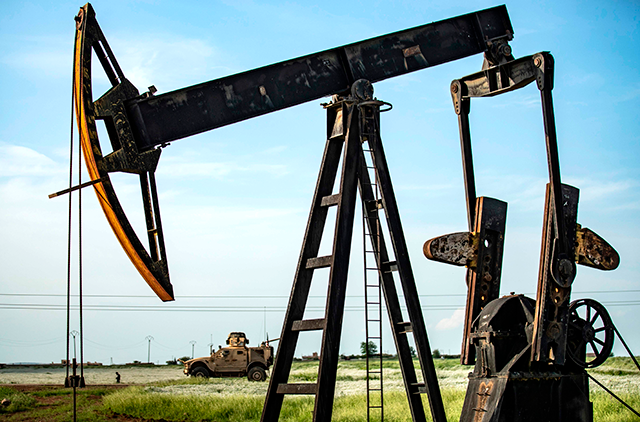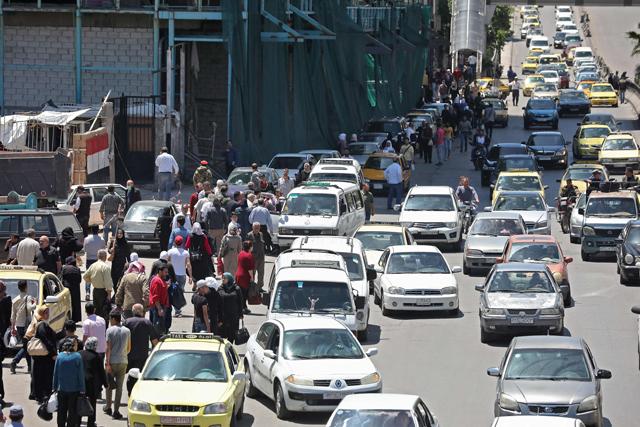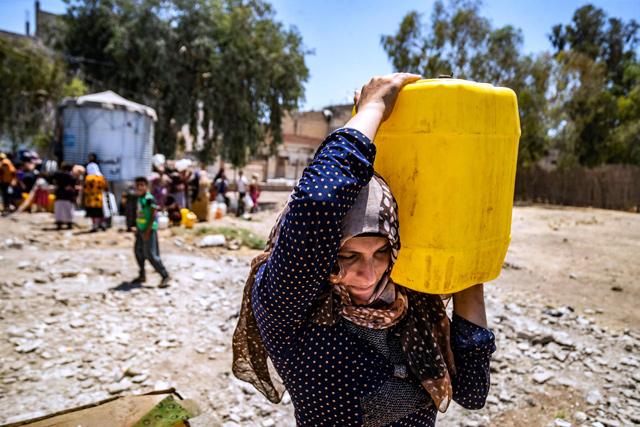You are here
Damascus further rations subsidised petrol
By AFP - May 10,2020 - Last updated at May 10,2020

A US military vehicle patrols the oil fields in the town of Qahtaniyah in Syria's northeastern Hasakeh province near the Turkish border, on May 8 (AFP photo)
DAMASCUS — Syria's government on Sunday banned cars with large engines from receiving subsidised petrol in the latest move to curb a hydrocarbon crisis, in the war-torn country, which the government blames on sanctions.
Heating fuel, petrol and cooking gas have been in short supply over the past two years, with Damascus ordering a series of caps on consumption to try to cope.
Oil and Mineral Resources Minister Ali Ghanem said there would be no more subsidised fuel for cars with engines larger than 2,000 cc as of Sunday.
Individuals or companies with more than one vehicle were also no longer allowed to benefit from the subsidies.
Before these measures, any car owner was entitled to 100 litres of subsidised petrol per month.
With state help, a 20-litre tank refill used to cost 5,000 Syrian pounds (around $7).
Now those hit by the new rations will have to pay 9,000 Syrian pounds (around $12) for the same volume.
Ghanem said the measure "lifted subsidies for only nine per cent" of cars, according to state news agency SANA.
"Oil derivatives and crude oil supplied to Syria do no just entail international oil prices, but also the cost of transport and financial transactions as a result of the harsh economic measures" imposed on the government, he said.
Damascus has repeatedly blamed the fuel crisis on Western sanctions.
The latest petrol rationing has sparked criticism in the streets and online.
Actress Shukran Murtaja wrote on Facebook: "Can I possibly spend more on my car than on my home? I've decided to sell it."
Ghanem has said Syria needs 146,000 barrels of crude oil per day, whereas it produces just 24,000 locally.
Syria used to produce almost 400,000 barrels per day before civil war broke out in 2011.
But nine years of conflict have ravaged production, and seen US-backed Kurdish-led forces seize control of the largest oil fields in the country.
Syria is in the grips of a severe economic crisis that has seen the value of the local currency plummet to record lows on the black market, and food prices double in a year, according to the World Food Programme.
Related Articles
DAMASCUS — Damascus raised petrol prices in government-held parts of Syria by more than 50 per cent after the Syrian pound hit record lows i
DAMASCUS — Syria's internal commerce ministry has announced a petrol price hike of around 130 per cent in the war-torn country facing fuel s
DAMASCUS — Steep bread and diesel price hikes went into force in government-held parts of war-torn Syria on Sunday, bringing more pain for c

















